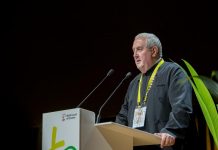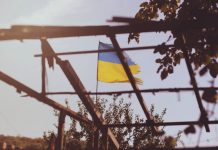In the midst of one of the worst public health crises in the world, Christians in Brazil are upholding their tradition of celebrating the Week of Prayer for Christian Unity in the lead up to Pentecost. For the second year, they will be gathering in prayer without physical gatherings though.
The Week of Prayer for Christian Unity – celebrated for some around Pentecost and others in January – shows the continued commitment to work toward the visible unity of Christians. The world over, it brings together different Christian traditions, opening eyes, strengthening faith, and reinforcing the conviction of our common Christian roots in a divided world.
“The feeling of having to hold the celebrations again in a virtual way is ambiguous,” says Rev. Romi Bencke, general secretary of the National Council of Christian Churches of Brazil (CONIC). She is thankful for what she calls the churches’ “testimony of love:” the fact that they are “avoiding crowds and teaching that the church is not the physical space, but the community gathered in prayer wherever people are.”
“On the other hand, the feeling is one of sadness, because in Brazil we have no concrete prospects for returning to our activities. There is a very deficient conduct on the part of the federal government in tackling the COVID-19 pandemic. We have no prospect of when we will return to our face-to-face meetings with joy and affection.”
The Week of Prayer for Christian Unity has been jointly organized by the Pontifical Council for Promoting Christian Unity and the WCC since 1968.
This year’s theme, “Abide in my love and you shall bear much fruit” comes from the Community of Grandchamp in Switzerland. Its 50 sisters from diverse confessions and countries prepared the international outline of the week drawing on their contemplative life abiding in the love of God.
The Amazon Council of Christian Churches adapted the international material for their national context. In Brazil, the prayers for unity therefore reflect the diversity of Creation and people living in the Amazon region.
WCC, oikoumene.org















